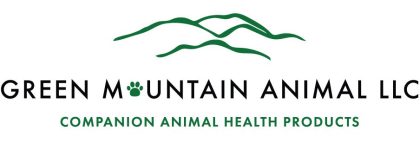Questions? Call Us Toll-Free 802-752-4738 | Email Us
The Top Vitamins Your Pet Needs Supplements For
Animals require essential vitamins to stabilize their bodily functions. Luckily, more and more pet owners are realizing this. This is proved by a 2006 study published in the Journal of the American Veterinary Medical Association. It stated that almost a third of cats and dogs in the US receive supplements of some sort. Over a decade later, this fraction has gradually increased.
The cases in which your pets should be given supplements are if they suffer from a vitamin deficiency or some disease in which they can respond to supplements. Other cases can be if your pets are picky about the food you give them or eat meals that are prepared at home, both lead to a nutritionally imbalanced diet.
The Importance of Vitamins
Vitamin A serves as an important factor in the growth and fetal development in animals. It synthesizes proteins for the metabolic process as well as hormones for reproduction. It ensures stable growth in epidermis cells, which make up the skin. It helps in maintaining a healthy immune system. Like humans, vitamin A is important for animals to have good eyesight. However, cats face a higher risk of deficiency since they require a form of vitamin A as already present in the liver. Therefore, they have a higher need for supplementation. Deficiency in animals can lead to issues such as reduced vision in the dark, skin problems and complications in reproducing. It can also lead pets being easily prone infections.
B vitamins make a significant contribution to many processes and functions within the body. Vitamin B1, also known as thiamine, is essential for the functioning of the nervous system as well as energy production in their cells. This is done by metabolizing carbohydrates that are the main source of energy for all other body functions. Reasons for deficiency can vary from an imbalanced diet to a disease that prevents the small intestine from absorbing thiamine.
Supplementation becomes crucial in these situations, otherwise symptoms like poor muscle growth and weakness may occur. Vitamin B3, which also referred to as niacin, is important for protein synthesis and other chemical reactions in the body. Cats are generally at higher risk of developing a deficiency if they do not intake adequate sources of B3 in their diet.
This is because their bodies are unable to produce sufficient B3 for proper functioning. Supplements become necessary to avoid symptoms such as dermatitis or diarrhea. B9 is commonly known as folate and is crucial for rapid cell division as in the process of fetal development. Supplementation for female animals has a beneficial effect on fetal growth whereas a deficiency can lead to the fetus having malformed features.
Vitamin D is important in balancing the level of calcium and phosphorus minerals in the blood. It allows the conservation of calcium in the kidneys and is important for bone formation and muscle control. Mammals are able to synthesize it within their skin cells, but cats and dogs cannot, which is why you have to provide them with necessary supplementation.
Vitamin E helps in the production of the cell membrane, and since the main source of this vitamins are plant oils, carnivorous pets are likely to develop deficiencies. Therefore, supplements can become important to ensure a healthy functioning of the body.

Sorry, comments are closed for this post.